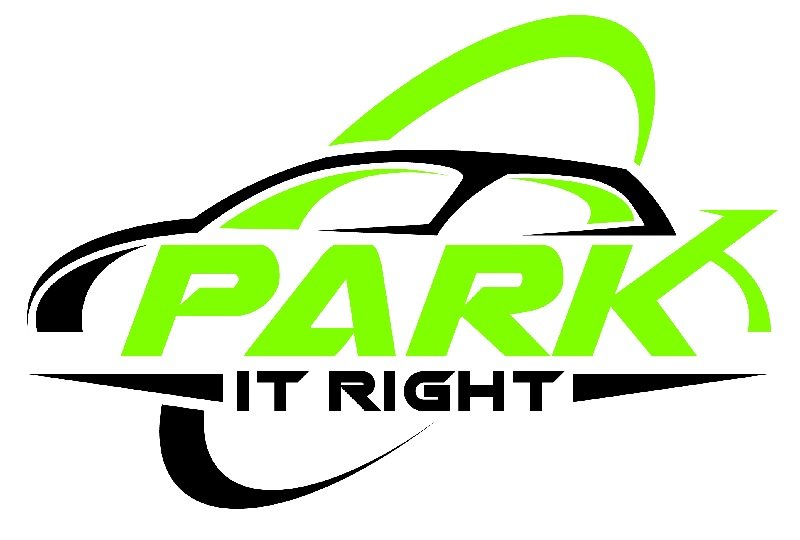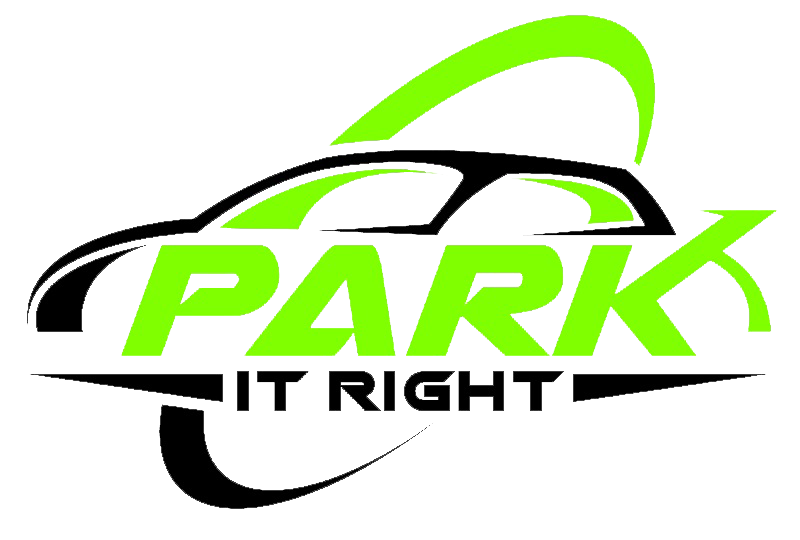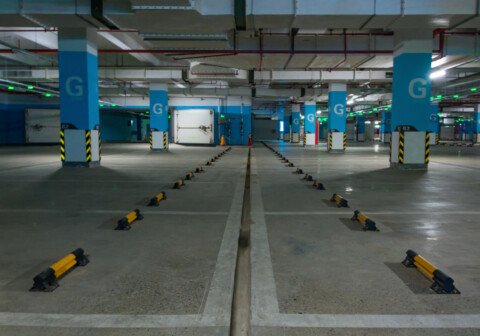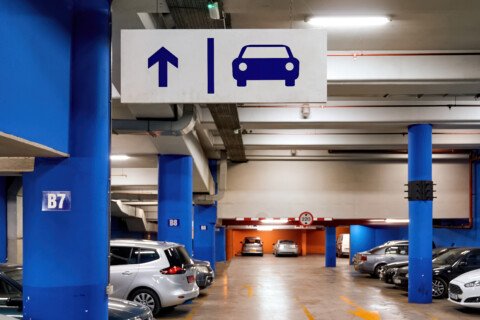
September 24, 2019
Colorado Public Utilities Commission
Decision No. C19-0748
IN THE MATTER OF THE PROPOSED RULES REGULATING VEHICLE BOOTING COMPANIES, 4 CODE OF COLORADO REGULATIONS 723-6.
The Public Utilities Commission was tasked with introducing rules for vehicle booting company by the State Legislature SB-236. We respectfully submit our response to the proposed rules for vehicle booting companies Proceeding Number 19R-0485TR.
Towing Done Right, LLC disagrees with the Public Utilities Commission as the proper authority to enforce regulations on booting companies. Our position is that booting is performed solely on private property and should not be regulated by PUC. The regulating of booting companies has always been performed at the city level such as Avon, Denver and Glendale have done.
The City of Boulder is where booting has been prevalent for over 15 years without Boulder adopting booting rules. If Boulder felt there was a need they would have regulated it as they have many other businesses. The two (2) complaints that led to this rule making occurred in Boulder.
We respectfully request PUC staff to take into consideration the limited number of complaints (2) that lead to this rule making and the limited number of booting companies (less than 10) in the State of Colorado when making these rules. An overly burdensome regulation will deprive the consumer of an alternative to a tow impound by making it too costly for a booting company to thrive.
BACKGROUND
As the Public Utilities Commission undertakes this rule making, we would like to start with some background information that we feel will help this process. As an industry expert our position is that there are two (2) types of booting/immobilizing services; commercial – residential and the rates should reflect the differences.
As is often the case the two (2) complaints that led to this rule making were performed on a commercial shopping type property. The one complainant was politically connected to a State Senator whose wife was also booted. These two (2) incidents led to a bill passed into law designed to regulate an industry that has less than ten (10) businesses.
The events of these incidents were that both parties had parked in violation of the posted parking rules. The father of the son that was booted for parking in the wrong lot stated that he was pursuing this even though his son was in the wrong. The State Senators wife has also admitted to parking in the wrong parking lot but was upset that she could not speak to a supervisor to dispute her boot.
Two private businesses with limited parking hired a booting company to help reduce violators instead of towing them away like all other businesses. A private property owner and business owner should have the ability to control parking that can adversely affect the health of their business.
This rule making will harm the consumer by potentially eliminating an enforcement option that is less intrusive than towing. The consumer does not benefit from this abuse of power by a Senator that apparently wanted to “pay” back the booting company for booting his wife. As presented this rule making will make booting unprofitable and a company like ours will just revert back to towing. Effectively harming the consumer by taking away an enforcement option that leaves the vehicle onsite with an immediate remedy.
The Senator apparently has never experienced a tow impound. Instead of the courtesy of a boot that can be paid for and removed in minutes. The Senator is pushing to have towing remain as the overbearing enforcement tool it has always been. Instead of his wife waiting to have her boot removed she would have had to make arrangements for a ride to the industrial part of town where the tow yards are located. Often times a cell phone or purse was in the car making matters worse. This is not a benefit for the consumer.
It is our position that there was not a need to regulate booting companies based on two (2) complaints. Booting has been regulated by Cities that felt the need to regulate booting companies. PUC is not the proper authority to regulate booting, a service conducted 100% on private property.
Booting was developed in Denver to help Denver Police obtain outstanding parking ticket fines. The Denver Boot was developed to provide the police an option besides towing of a vehicle to the impound lot. A majority of cities throughout the country use booting for parking violations in an attempt to get the violator to pay outstanding parking tickets. Boots have also been used by courts to obtain child support or other outstanding fees.
Some private companies have used booting on commercial parking lots to control parking on the property. Until recently residential booting was not an option since there were too many factors that limit a company from wanting to use a boot. In a residential setting people often have tools available to cut the boots off. They can also lay in wait to attack the person when they come back to remove the boot.
I invented a Remote Release Vehicle Boot and Boot Return Station to benefit the consumer and give them an alternative to towing. The advent of remote release technology has led to a change in the market. The remote release allows for confrontations to be avoided. Payment to be made via app for the release allowing the violator to be on their way in minutes. It still does not change the potential for loss of a boot from being cut off.
Private companies have few remedies for the loss of a boot from being illegally removed. Whereas a city has many avenues of recourse. The cost of a stolen boot is figured into our pricing structure and should be considered in this rule making process.
A commercial lot has a high volume of vehicles coming and going creating parking issues that are often addressed with a boot or tow. Booting or towing on a high-volume lot creates a lot of problems and often leads to abuse by the booting or towing company. To compound matters many property owners’ expect a kick back from the booting or towing company further complicating matters.
Commercial lots are very difficult to have adequate signage due to the nature of the parking lots. This often creates a situation where a person parking may not see or notice the warnings. Even when signs are placed in every parking space and uniformed patrol people are visible people will still park in violation leading to a lot of enforcement actions that can often lead to numerous complaints.
To start our business Park It Right, Inc. d/b/a Towing Done Right. LLC we needed to be licensed in Denver, but could not find it viable at their present rates and rules. I made an effort to reach out to the City Council members of Denver to plead our case.
An Email I sent to the City Council of Denver in 2016
| Joel Perri <joel@parkitright.net> | Thu, Nov 17, 2016, 6:34 PM | ||
| to kendra.black | |||
Dear City Council Member Kendra Black,
I know you are extremely busy with important issues so I hope I am going about this the right way. As I’m sure you know being able to work in the City of Denver is our goal. I’m only asking that the code be amended to be reasonable and up to date. I have attached the information from the Denver City website dealing with booting by the City of Denver.
The City of Denver’s hours of operation are Monday – Friday 8am to 5pm and closed on Holidays. Yet in Municipal Code 55-297 Paragraph 2 item b requires a private operator to be open 24 hours a day 365 days a year “for the purpose of releasing vehicles from immobilization.” That doesn’t really make sense because the vehicle is immobilized requiring a person to come out to the vehicle to release the boot. That said I do agree that a private operator should make available the release of their vehicle in a timely manner.
My remote release has been used by 93% of the people we have booted. They were on their way in less than 10 minutes. We do meet the burden of ensuring the public can be on their way without undue burden. If an onsite release is needed, we provide 24 hour a day patrols for a timely response.
Our service is not one to sit in the shadows waiting to pounce on someone just barely getting out of their car. We provide a pro-active customer service oriented service for parking facilities that are tired of blow back from towing people. We truly are trying to put a much better business model that provides a valuable service. In order to provide a professional service we set our fees higher than the maximum allowed by code.
I understand the maximum of $100.00 for the booting companies that sit on one parking lot waiting for their prey. With our service we take into account that we are releasing many vehicles at no charge ie they forgot their permit, or their handicap placard fell down or they had a medical emergency. We release around 10% of the vehicles we immobilize at no charge in our quest to provide the professional customer service that has been lacking. In keeping with customer service in mind requiring an 8”x11” warning label seems to be overkill.
I hope that you see a value in allowing a company like mine to operate with a little more freedom. I believe we can be a good business for the City of Denver and its citizens.
| Black, Kendra A. – City Council <Kendra.Black@denvergov.org> | Nov 20, 2016, 1:53 PM | ||
| to me | |||
Thanks for your email. I will bring your concerns to Excise & Licenses which is currently reviewing booting rules.
Kendra Black
…
| Kilroy, Ashley R. – Mayor’s Office <Ashley.Kilroy@denvergov.org> | Nov 21, 2016, 6:09 AM | ||
| to Nathan, me | |||
Good morning Joel. Thanks for the information and background. Nathan and I will discuss and get back to you.
Regards,
Ashley
Sent from my iPhone
> On Nov 21, 2016, at 1:35 AM, Joel Perri <joel@parkitright.net> wrote:
>
> Hello Director Ashley Kilroy,
>
> I began your pardon for the intrusion as I’m sure you are extremely busy with your recent promotion. I had contacted the City Council for help on a matter with my business license. Council Member Black mentioned that she was going to contact Excise and License with my concerns. I do apologize because I did not realize I should have gone further up at Excise and License. I have a unique situation pertaining to my business license.
>
> When I started my company I inquired about a business license for the City of Denver. I sent an email to Licenses@denvergov.org<mailto:Licenses@denvergov.org> on August 24, 2015 because I was unable to find a business license for my type of company; Vehicle Immobilization Service.
>
> Hello
>
> I was inquiring to see if you require a license to operate as a vehicle booting company on private property? I did not see any license on your website.
>
> Respectfully,
>
> The Response I got pointed me to a specific section of the Municipal Code that did not apply to my specific business.
>
> Good Morning,
>
> Please visit our website at www.denvergov.org<http://www.denvergov.org/> >business services>business licensing>”P” for parking lot/garage and review the information about licensing and also the PDF on Notice Regarding Parking Lot Towing.
>
> Thank you,
> Elaine Lawrence-Reese
>
> Just out of the blue I decided to stop in to Excise and License to see if my business needed a license. I was informed by the technician hadn’t heard of my license. He then did a search and could not find my license type. He then asked someone else in the office who informed him to tell me that there is now a license requirements. He had difficulty finding the proper licensing paperwork and could not supply a proper surety bond form.
>
> As explained to the City Council Members I have no issue with being licensed and in fact I would prefer to be licensed. My concerns are based on the Municipal Code Section 55-296 Vehicle Immobilization Service requirements that are severally outdated. I am the inventor and Patent holder of a Remote Release Vehicle Boot and Boot Return Station system that is revolutionizing parking enforcement in the metro area. This coupled with our business model makes many of the code requirements onerous.
>
> Code 55-297
> 2 a This large size warning decal was to ensure people did not miss the boot on their vehicle and how to get it off. I would hope a decal half the size would be sufficient with the contact information necessary to get the boot removed. Plus our boot is Hi-Viz Green easily seen from a distance.
>
> 2 b This requirement is excessive and is in contradiction with hours of operation for the City of Denver booting department. The thinking behind this is based more on the City model where people need an office to go pay their fine to remove a boot. Our Remote Release system and technology allows for someone to call in and pay their fine and obtain a release code in minutes. Onsite releases are rare, but handled in an expedient manner. There shouldn’t be an undue manned facility requirement that serves little to no actual operational function to help facilitate the boot removal.
>
> 2 c The rates are also based on a city or parking lot model, but doesn’t take into account our business model. We charge more because we offer more to provide a revolutionary new approach to parking enforcement. Instead of the “Gotcha” mentality of regular booting and towing companies we have a pro-active customer service oriented approach. I have attached some information on our company to explain in more detail. One key factor that we have figured into our charge for service is free releases. We release handicap, disadvantaged and other people based on numerous factors in keeping with our philosophy of pro-active parking compliance with customer service in mind.
>
> We request more freedom in being able to charge accordingly for services as in our business we can boot larger vehicles, trucks and even tractor-trailers. There should be several levels to the rates that consider current costs not considered when this code was drafted a decade or two ago. Our rates are $135.00 regular, $150.00 truck and $300.00 semi with a $10.00 processing fee-onsite releases are $50.00 more. As you can see these rates are reasonable when compared to the antiquated rates or a costly tow impound.
>
> I know this license isn’t a big draw, but for a company like ours we want to be able to work in Denver in a profitable and equitable manner. I hope that you take a look at my request for consideration and find that they are reasonable requests.
>
> Respectfully,
>
> Joel Perri – President/CEO
The Denver City Council was unable to change the law but requested that Excise and License allow Park It Right to operate with our rates as long as we didn’t perform our services on commercial properties. Our rates have increased since then due to rising costs.
Our business model is to provide a much-needed different approach to parking compliance than a tow impound. Green to be Seen is used to provide easy to see parking rules, signs, vehicles, uniforms and enforcement equipment reducing violators before they violate. The remote release vehicle boot allows for people to be penalized without having their vehicle taken away or waiting for a conventional booting company to come remove the boot.
Presently a tow company hauls someone’s car away to an impound yard in the worst part of town. Most often people had their purse or wallet in the car or maybe their phone leaving them stranded in a dark parking lot. Finding a ride to the tow yard only to have to deal with some rough around the edges tower makes the situation worse.
A tow begins at $250.00 escalating $30.00 a day and forfeiture of the vehicle after 30 days. A tow can be devastating. Many times, there is a language or other barrier that prevents some from pursuing a remedy through the local authorities when they have been taken advantage of.
Until recently there was only one booting company in Denver that was recently seen on the news. They serviced one parking lot behind VooDoo donuts where they wait for someone to make the mistake of parking in the rear parking lot. As soon as they go around the corner a booting company representative pops out of the shadows to boot the vehicle. Cash is the only way to have the boot released with a threat of tow if they fail to pay, who has $100 or more cash at midnight? (Hotrodz is now out of business since they couldn’t comply with Denver) Park It Right developed a business model to counter these issues.
Our business provides for highly visible signs with specific parking rules spelled out on our boot return station. Our hi-viz green boots help prevent others from violating the rules unlike the unseen tow truck. When someone comes out to find their vehicle booted they call our 855-727-5487 number 24/7 to speak to a company employee. They have the option to do a remote release with a credit card or have us come onsite to remove it for an additional fee of $50.00. The remote release averages 5 minutes for someone to pay and be on their way.
The City of Denver saw the need for a different type of service and has allowed us to operate as we do. We are able to charge the rates in line with a tow impound hook up fee.
Park It Right, Inc. developed Towing Done Right, LLC to ensure that we are able to provide a complete consumer based solution. Instead of using a tow truck to impound vehicles we use our remote release boot as a courtesy for the consumer. Our remote release vehicle boot and boot return station allow for parking enforcement to take place without a devastating tow impound. When a tow is needed we will impound the vehicle according to the present PUC rules.
By providing a proportional enforcement option of booting then towing the consumer benefits greatly.
RESPONSE TO PROPOSED RULES
- Response to Paragraph 5: SB19-236 Part 8 requires a person to have a permit to operate a vehicle booting company. We request that a PUC T-Permit holder can also obtain an endorsement under its T-Permit to allow for booting. In consideration of a T-Permit holder’s requirements we request that a T-Permit holder be allowed to obtain a booting endorsement without further expense.
- Response to Paragraph 6: Acknowledge the definition of a booting company.
- Response to Paragraph 7: No Objection to Requirements – A PUC T-Permit holder should be considered compliant with booting requirements without duplicating the process.
Description of Proposed Rules
- Proposed Rule 6809 – The employee performing the immobilization shall conspicuously affix to any immobilized vehicle a warning notice in with contrasting lettering, not less than four (4) by five and a half (5 ½) inches in size, with letters at least one and one-half (1 ½) inches in height, advising the owner, driver or person in charge of the vehicle that the vehicle is immobilized and damage may occur if the vehicle is moved, or if the immobilization device is tampered with. The warning should be placed in the lower right corner of the drivers side door glass. The larger stickers irate people and create liability issues by limiting visibility.
- Response to Paragraph 7: No Objection to Requirements – A PUC T-Permit holder should be considered compliant with booting requirements without duplicating the process.
- Proposed Rule 6810 – Booting and Towing have been synonymous services used for parking enforcement. A Towing company that already has PUC Authority to operate as a T-Permit holder should also be able to boot vehicles without having to have a separate license.
A PUC T-Holder has already met the qualifications to be a T-Permit Holder and those qualifications should be sufficient for PUC to authorize the T-Permit Holder to immobilize vehicles with a vehicle boot without a duplicate and costly additional license. - Proposed Rule 6811- Agree with the definition of “vehicle booting company.”
- Proposed Rule 6812 – A PUC T-Permit holder should be able to boot vehicles without a special license to do so since Booting and Towing are synonymous tools used for parking enforcement. The process should allow for existing T-Permit holders to be able to boot without further financial burden of a separate license. Especially since the T-Permit holder has already met the requirements to obtain the T-Permit set out by PUC and the US DOT. Those requirements most likely will be a mirror of the T-Permit requirements in many ways.
- Proposed Rule 6813 – A T-Permit holder has already met the requirements and should not have to duplicate the process.
- Proposed Rule 6814 – We agree that both a Towing Company and a Vehicle Booting Company must identify their equipment and employees while in the performance of their duties. At this time a T-Permit holder is not required to wear uniforms. We recommend all companies performing parking enforcement with a tow truck or boot should be required to wear uniforms with contrasting lettering listing the company name clearly visible from a distance of 25 feet. Each vehicle boot should also have the Company Name and 24 Hour Phone Number for removal.
- Proposed Rule 6815 – This requirement should mirror the T-Permit requirement.
- Proposed Rule 6816 – This requirement should mirror the T-Permit requirements.
- Proposed Rule 6817 – The rates allowed should be established to represent the two different types of booting services – commercial and residential. Denver and Avon were used as examples of rates charged for booting services. As described in the Background Description Denver has already acknowledged that their rate was established for commercial parking lots and that a higher residential rate is appropriate.
- Commercial Rates – Denver’s Ordinance boot rate was set in 2001 at $100.00 per 24 hour period. In today’s dollars that is $144.87 per 24 hour period. While Avon’s rate was set in 2008 at 75% of PUC T rate which at the time was $160.00 making the booting rate $120.00. In todays dollars that is $143.54. Both rates are nearly identical giving credence to their validity. The commercial rate for booting should be set at $150.00.
Commercial would be considered shopping centers, pay parking lots, mall parking lots, restaurant parking lots, small business parking lots and other high volume in and out parking facilities that do not have residential living. The majority of complaints including the ones that started this booting regulation process stem from commercial parking lots.
Due to the number of vehicles coming and going from a commercial lot a large number of vehicles can be booted or towed in a short period of time. The costs of booting or towing from a commercial parking lot are considerably lower and should be reflected in the rate cap. - Residential Rates – Booting on residential properties ie Home Owner Associations and Apartment Communities was just developed by Park It Right in 2015 as an alternative to towing with the NO TOW SOLUTION. Park It Right d/b/a Towing Done Right PUC T-Permit 04884. The City of Glendale is the only city that has adopted booting rules to deal with residential communities. They mirror Denver rules except they place no cap on rates.
We propose a residential booting rate to mirror the T-Permit non-consensual towing hook up and drop fee rates. It costs a booting company just as much as a tow company to get to the vehicle and hook it up or install a boot.
Booting or immobilizing a vehicle now has Remote Release options that require the violator to provide a deposit prior to receiving a code to remove the boot. This deposit should be determined by the company providing the consumer benefiting option based on their costs of the unit and the risk they are willing to take. Presently most deposits are under $200.00.
The violator is given the option of a remote or onsite release. More than 98% of our consumers choose the remote release option. We have installed nearly 10,000 boots with less than 10 failing to return the boot after choosing the remote release option. An indication that the service is appreciated and needed.
Due to the number of vehicles coming and going from a commercial lot a large number of vehicles can be booted or towed in a short period of time. The costs of booting or towing from a commercial parking lot are considerably lower and should be reflected in the rate cap.
- The violator is given the option of a remote or onsite release. More than 98% of our consumers choose the remote release option. We have installed nearly 10,000 boots with less than 10 failing to return the boot after choosing the remote release option. An indication that the service is appreciated and needed.
We propose a residential booting rate to mirror the T-Permit non-consensual towing hook up and drop fee rates. It costs a booting company just as much as a tow company to get to the vehicle and hook it up or install a boot.
Booting or immobilizing a vehicle now has Remote Release options that require the violator to provide a deposit prior to receiving a code to remove the boot. This deposit should be determined by the company providing the consumer benefiting option based on their costs of the unit and the risk they are willing to take. Presently most deposits are under $200.00.
The violator is given the option of a remote or onsite release. More than 98% of our consumers choose the remote release option. We have installed nearly 10,000 boots with less than 10 failing to return the boot after choosing the remote release option. An indication that the service is appreciated and needed.
We believe our recommendations are sound and based on the realities of our extensive industry experience.
Respectfully,
Joel Perri







